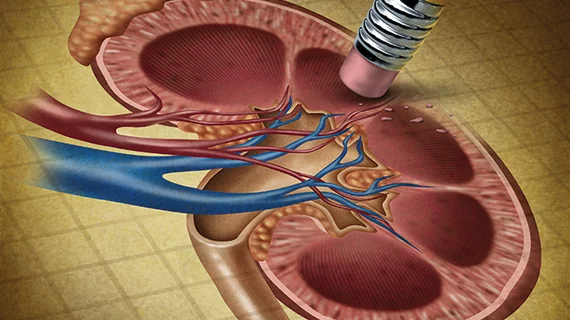Diabetes, hypertension cause 64% of end-stage kidney disease cases
The CDC has released a new fact sheet on the burden of chronic kidney disease (CKD) in the U.S., highlighting its relationship to cardiovascular disease and noting that 15 percent of American adults—or 37 million people—have CKD.
High blood pressure and diabetes are top risk factors for CKD, as about one-third of diabetics and one-fifth of hypertensive individuals have the condition, according to the CDC. Further driving home the connection between cardiovascular conditions and kidney problems, the American College of Cardiology’s scientific sessions this weekend will feature more than 20 studies investigating the link between CVD and CKD or acute kidney injury.
The CDC recommends people with high blood pressure or diabetes talk with their physicians about how to protect their kidneys and get tested for CKD to facilitate early detection and prevention. Following a healthy diet and taking medications for those conditions could keep CKD from progressing, according to the report.
Here are some other notable statistics from the fact sheet:
- About 90 percent of people with CKD don’t know they have it, including half of individuals with very low kidney function.
- CKD is more common in women (15 percent) than men (12 percent).
- The prevalence of CKD also varies by race/ethnicity: 16 percent of black adults have the condition, compared to 14 percent of Hispanics, 13 percent of whites and 12 percent of Asians.
- Diabetes (38 percent) and hypertension (26 percent) are the reported causes of nearly two-thirds of end-stage renal disease cases.
- In 2016, nearly 125,000 people in the U.S. began treatment for end-stage renal disease and 726,000 were on dialysis or had received a kidney transplant.

